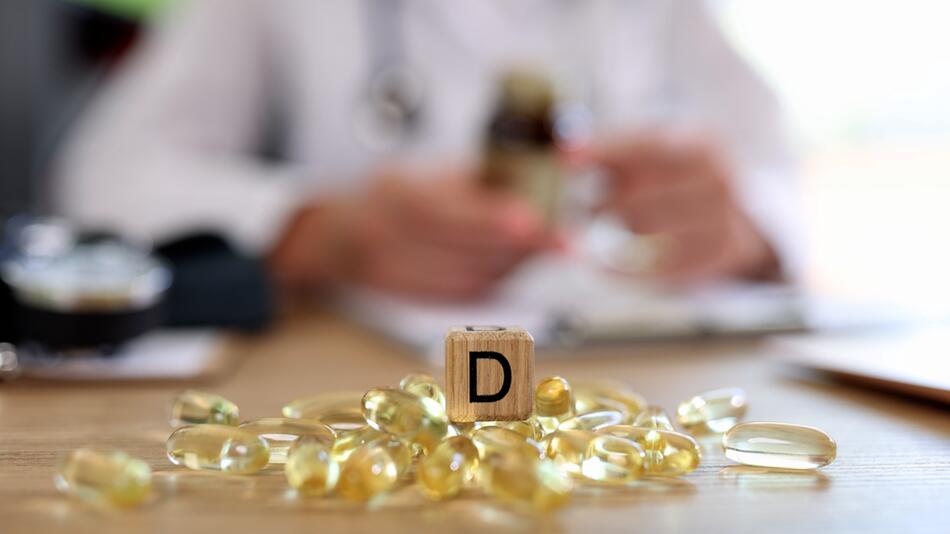health
Updated on 07/14/2023 15:43
Vitamin D is considered the “sunshine vitamin” because the body needs UV rays to make it. It performs important functions in the body and thus can have positive effects on our health. However, sunbathing can have the opposite effect and damage the eyes, skin, and immune system.
Vitamin D is the general term for several fat-soluble vitamins. This often means vitamin D3 in particular. It is found in some foods and can also be produced by the body itself. During this process, provitamin D3, a substance found in skin cells, is converted into vitamin D by UV exposure and other metabolic processes.
Vitamin D plays an important role in maintaining healthy bones. In addition, it helps regulate calcium and phosphate metabolism in the body. This is important for maintaining healthy skeleton and teeth, as well as for normal heart and muscle function.
Immunostaining by ultraviolet light
However, excessive exposure to UV rays can weaken the immune system by suppressing the immune response. professionals She refers to this process as immunosuppression. Various complex reactions occur in the skin after UV radiation, in which different types of skin cells and the immune system as well as a large number of cell-specific messengers are involved.
Immunosuppressive effects can manifest, for example, in the form of cold sores (herpes simplex) after sunbathing or a worsening of a cold after exposure to the sun.
In addition to the effects on our immune system, immunosuppression by UV rays can also contribute to the development of skin cancer. This is because the immune system plays an important role in recognizing and eliminating cells that have turned cancerous. If it is weakened, there is an increased risk that cancer cells will not be recognized and eliminated, and cancer, including skin cancer, may be more susceptible.
The right measure when sunbathing
Therefore, the sun stimulates the production of vitamin D in humans and can therefore have a positive effect on our health. At the same time, too much ultraviolet radiation is also harmful. Could then a dose be given at all above which the immune system is suppressed or – more generally – when UV radiation becomes dangerous?
A spokeswoman for the Federal Office for Radiation Protection said: “There is no general answer to the question of when sunbathing begins to damage the immune system.” This depends on individual factors. For example, health status, age or skin sensitivity play a role. The state of the immune system is also important. If this is weakened, for example by stress, lack of exercise, illness or psyche, disruptive factors such as UV rays can have even greater effects.
But even people with strong immune systems should be careful when sunbathing. “Theoretically, the immune system can be suppressed as soon as the ultraviolet radiation begins,” the spokeswoman continued. “There is no health-promoting UV radiation in the form of stimulation of endogenous vitamin D synthesis without the concurrent negative effects of UV radiation.” This is why there is no indication of how long an individual can be safely exposed to UV rays.

Vitamin D is important, especially for our immune system. According to a new study by the German Cancer Research Center, daily intake of vitamin D improves the chances of surviving cancer.
Recommendation on UV rays and vitamin D
For this reason, the responsible use of both natural and artificial UV rays is important. Federal Office for Radiation Protection Offers the following recommendations Exposure to ultraviolet light to create enough vitamin D:
- Always make sure you don’t get a sunburn.
- For the formation of vitamin D, it is sufficient to expose the face, hands and arms without sunscreen for a short period two to three times a week – the duration is scientifically defined as “half the minimum effective UV dose from sunburn”. For people with a second skin type and a UV index of 7, this is theoretically twelve minutes.
- Learn about the UV index. The UV Index shows the highest intensity of ultraviolet radiation in terms of sunburn efficacy in one day. Many weather apps show it; The Federal Office for Radiation Protection also explains this In addition to the change in the effective UVB strength of a sunburn – also expressed as a UVB index – During the day.
- Avoid sunburn and high exposure to UV rays in children and young adults, as these can increase the risk of skin cancer. Babies should generally not be exposed to direct sunlight.
- Refrain from strong UV rays that are not medically controlled In the sun or in a solariumTo make Vitamin D or Tan.
- Only a doctor can diagnose and treat vitamin D deficiency. Vitamin D preparations should be taken under medical supervision.
Sources used:
- Federal Office for Radiation Protection: Effect on the Immune System
- Federal Office for Radiation Protection: What is ultraviolet radiation?
- Federal Office of Radiation Protection: Recommendation for UVB rays and vitamin D approved
- Federal Office for Radiation Protection: Daily Peak UV Index Values
- Federal Office for Radiation Protection: Ultraviolet Index: Current Daily Trends
- SSK.de: Protecting people from the dangers of solar UV rays and UV rays in the solarium
- Press office of the Federal Office for Radiation Protection (BfS)

“Alcohol buff. Troublemaker. Introvert. Student. Social media lover. Web ninja. Bacon fan. Reader.”






More Stories
Dwarf Dragon – Spectrum Science
Zelinger defends cooperation with China
Science – a research initiative that brings millions to the University of Mainz – Education